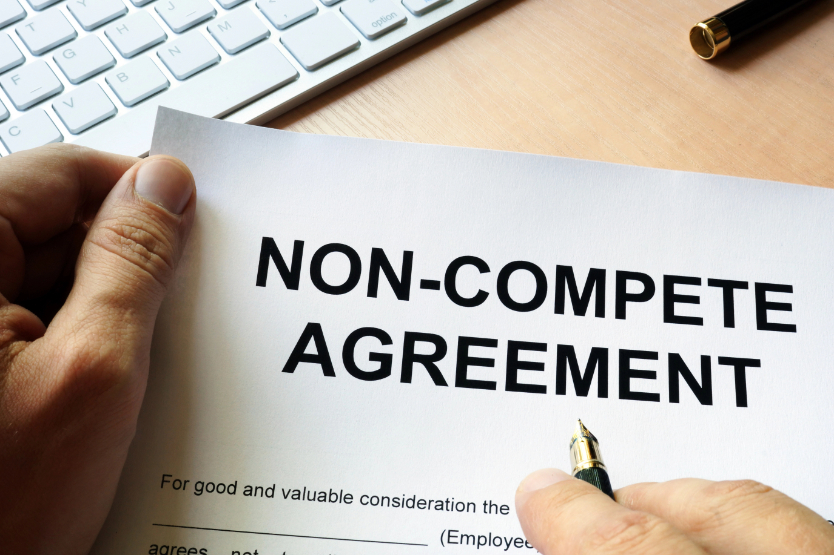DISCLAIMER: The content in this article should not be taken as legal advice. Always consult a lawyer regarding legal issues, especially as it relates to HR compliance.
Approaching a non-compete agreement can be nuanced, and with any legal agreement, abiding by regulations and any restrictions is a must for the security of your business and its success. Non-competes are agreements between an employer and employee that essentially prevent the employee from leveraging their skills to directly compete against the employer in the future. They can also protect trade secrets and are viable within a specific time frame and geographic radius.
Before drafting your non-compete, it’s a good idea to educate yourself on the factors involved and different considerations in play. Recent developments in the government have deliberated banning non-competes altogether, suggesting that moving forward, they may be harder to enforce. As a result, staying updated on any legal restrictions or laws in place is a smart business practice, so you’ll know how your organization will be impacted. Remember, before handing your agreement to anyone—always consult an attorney to review your non-compete agreement.
The Components of a Non-Compete Agreement
The more restrictive and vague the components of a non-compete agreement are, the less likely it will be upheld. When drafting your non-compete, there are several factors to consider:
Geography
Typically, non-competes prohibit former employees from competing with their company within a certain radius or area, such as city limits or a specific region. You’ll want to consider the broadness of the geographic area depicted in your non-compete, as more general radius restrictions, such as an entire state, are less likely to be enforced in court.
Duration
The duration that a non-compete is enforced is an essential factor in your agreement. In Indiana, there is no restriction on the maximum length a non-compete can be enforced. However, non-competes generally last between one and three years and, in specific cases, up to five years. Factors that play into duration are reasonability and role in your organization.
Industry
Non-competes must specify the type of work and industry former employees are prohibited from providing. Being specific here will allow both parties to have clear intentions about the non-compete agreement and what is asked of the ex-employee after their duration at your business.
Competitors
The competitor’s section of a non-compete lists specific businesses your organization might be in competition with that your former employee is prohibited from working for while your agreement is still in play. However, it’s important to note that this might not apply to new competitors that arise on the scene after the agreement is signed.
Damages
This section of a non-compete states expectations should a former employee violate their signed non-compete agreement. Damages could include a lawsuit, monetary damages, or injunctive relief.
Using Clear Language
Reliable non-compete agreements are specific in language and tailored to an organization and the employee signing the agreement. Clear expectations asked of the employee are more likely to be upheld by law and carried out by said employee.
Take a Proactive Approach
As a business, non-competes can protect trade secrets and avoid wasting time and money training an employee to later use their skills to benefit your competition. Applying non-competes where necessary is conducive to your time and theirs. It’s not always feasible to utilize them with all of your employees.
Consider State and National Regulations
Reviewing current legislation will ensure you abide by laws and regulations, both state and nationwide. Non-compete legislation is a conversation among the FTC and the courts right now. Anticipate changes in rulings while approaching your non-compete. Currently, states have different laws regarding non-competes—some limiting enforceability, with four states banning non-competes altogether.
The FTC Order is Still in Limbo
In April 2024, the Federal Trade Commission (FTC) issued a final rule banning non-competes nationwide. Under this rule, non-competes are illegal, with the exception of senior executive non-competes, who make up less than 0.75% of workers. However, in August 2024, this ruling was blocked by a district court. What does this mean for non-compete agreements? They are still legal nationwide, although the FTC is able to address non-competes case by case.
This is an active case, and rulings change. Be sure to stay current with non-compete laws, especially if you’re actively in the process of utilizing them or will be in the near future.
Seek Legal Advice
If you’re approaching a non-compete for your business – seek legal advice. A non-compete is a legal contract covering you and your employee’s best interest. You cannot rely completely on legal advice from the internet. An attorney should always review your non-compete agreement.
Consider Alternative Options
In some cases, non-compete agreements are the best option. However, staying open-minded to alternative options isn’t a bad idea. Non-disclosure agreements and confidentiality agreements are common alternatives used to protect your business. Trade secret protection laws also exist to deter misappropriation of confidential information. Consult an attorney and move forward from there.
Dealing with non-compete agreements requires full attention. Consider outsourcing a Professional Employer Organization (PEO) to handle administrative operations such as benefits and payroll so you can focus on the big stuff.
Download our PEO Buying Checklist to learn more, or reach out to begin the conversation about your organization’s HR needs. We’d love to chat about how we can help you support your people so you can focus on business outcomes.

